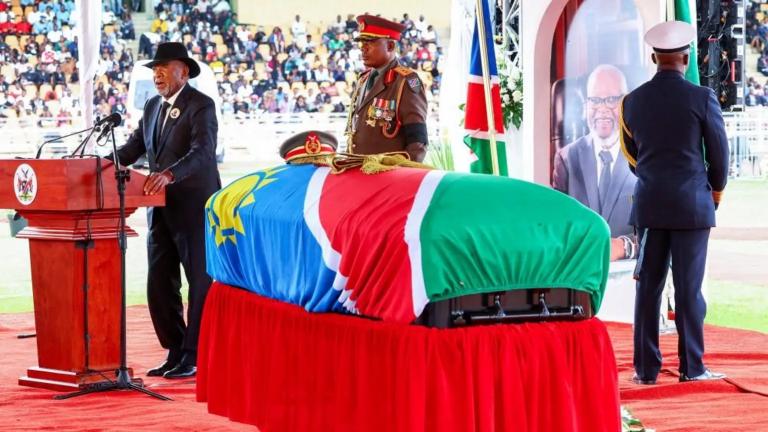State funeral ban takes effect in Namibia pending cost review

Local outlets have documented calls for a halt to the practice dating back to 2021, especially during the peak of the Covid-19 pandemic when scrutiny intensified.
The Namibian government has suspended all state funerals until April 2026, following growing public outcry over the escalating costs of official burials, which have placed a strain on public resources.
Information and Communication Technology Minister Emma Theofelus announced the moratorium after a Cabinet meeting earlier this week, saying it would remain in place while a review of the criteria and processes for granting state funerals is undertaken.
“A committee consisting of no more than seven members will be established to lead the review,” she told the BBC.
Theofelus added that only President Netumbo Nandi-Ndaitwah will have the authority to grant exemptions to the directive during the review period.
While the government did not explicitly link the move to criticism over costs, the decision comes amid sustained pressure from the public and media over the high spending on state funerals.
Local outlets have documented calls for a halt to the practice dating back to 2021, especially during the peak of the Covid-19 pandemic when scrutiny intensified.
The privately owned Windhoek Observer reported that the government spent 38.4 million Namibian dollars (about $2.2 million) on official funerals during the 2024/2025 financial year. This is a sharp increase from the 2.1 million Namibian dollars spent on 23 funerals in the 2022/2023 period.
The paper highlighted the February 2024 state funeral of founding President Sam Nujoma as a major factor in the spike. According to the report, about 30 million Namibian dollars was used to transport Nujoma’s body around the country as part of national tributes.
Nujoma, who passed away aged 95, was a revered liberation figure who led Namibia’s fight for independence from South Africa in the 1960s after founding the South West Africa People’s Organisation (Swapo). He became Namibia’s first president in 1990 and served until 2005.
The BBC said it had reached out to the presidency for comment on the decision, but no official response had been received.
